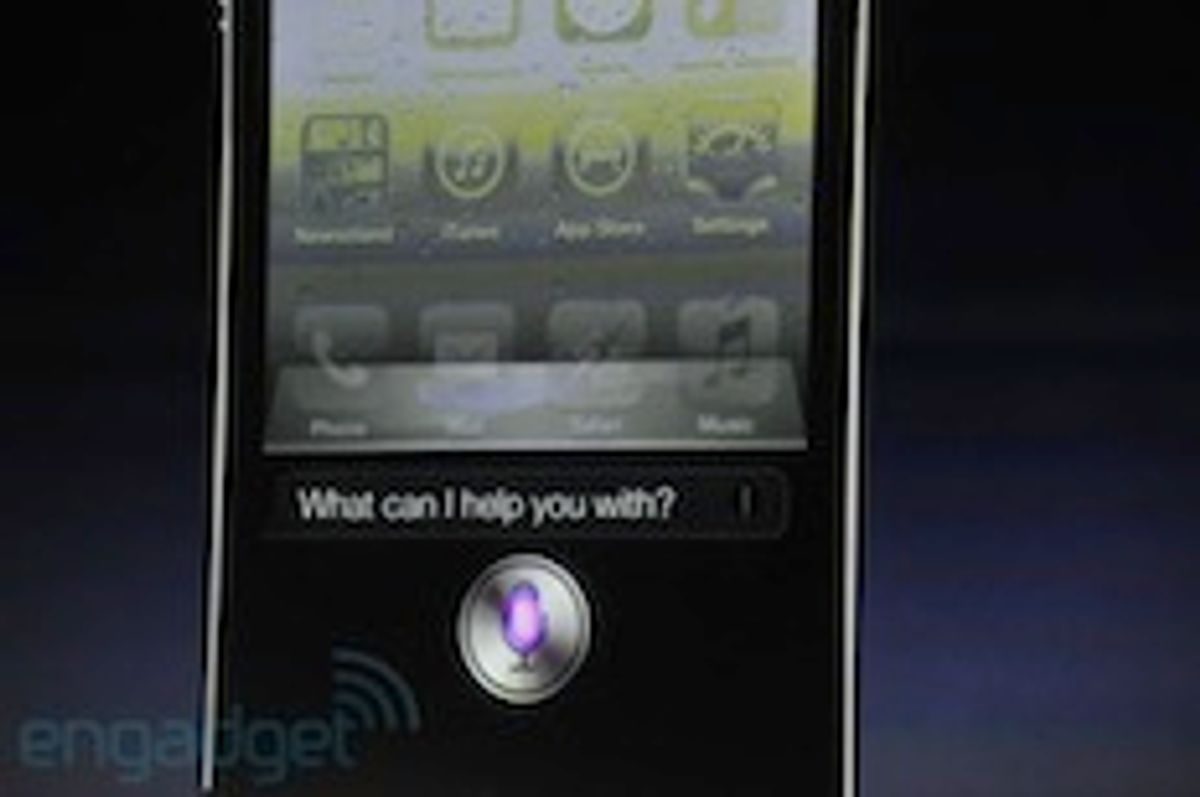Today Apple held an event to unveil the new iPhone 4S. From the outside, it looks much like the current iPhone 4, and there were no big surprises that bloggers hadn't already inferred by last week. (If you want to review the event for yourself, I recommend Gizmodo's meta live blog, which collected the best snippets from lots of other live blogs.)
Most notably, the new iPhone will have voice control deeply integrated into the operating system. The new feature is based on the Siri app, which Apple purchased last year. The idea is that you will be able to speak to Siri conversationally and the system will answer you back. In the demonstration, Siri was asked to "Find me a Greek restaurant in Palo Alto." Siri responded, "I’ve found five Greek restaurants, and I’ve sorted them by rating."
The original Siri app earned a spot on Tech Review's 10 Emerging Technologies list of 2009, and was based on AI research conducted for DARPA. But unlike the app, this new version of Siri requires additional hardware support. According to GigaOm, Siri requires both the new dual-core A5 processor and 1GB of RAM to do its job, so it won't be available for any other iPhone models.
Of course, voice commands are not exactly new technology. Google's Android has "Voice Actions," which allow you to get directions, send an email, or search with speech. Microsoft's new Mango OS also has voice control. The challenge for Apple is making Siri not just usable, but preferable to interacting directly with touch.
Tech Review's Tom Simonite thinks that Apple may be up to the challenge:
The formula is simple: take a bunch of neat technology that has never lived up to its promise, rethink what it's for, do some secretive hard work, and then release a natural, retrospectively obvious experience that redefines what computers can do.
...Voice actions on Android feel like a techy side feature, not a new way of interacting with computers.
As of this announcement, it's still too early to tell if Siri will live up to today's hype. Sure, in a hands-free situation (like while driving), voice commands could be very helpful. But in many social settings, talking on your phone is awkward; talking to your phone might be even worse.
Joshua J. Romero is a software developer and journalist. A former IEEE Spectrum senior editor, he holds a bachelor’s degree in astronomy and physics from the University of Arizona and a master’s in journalism from New York University.



